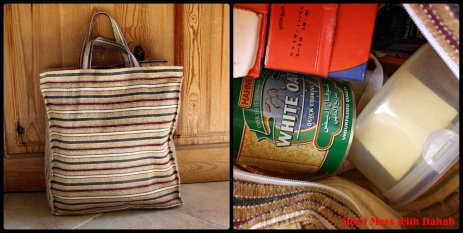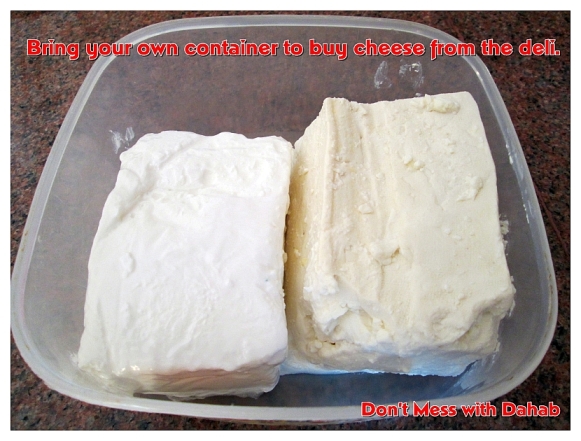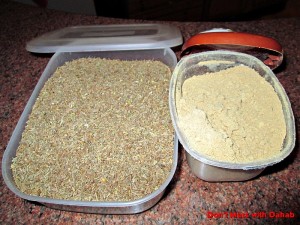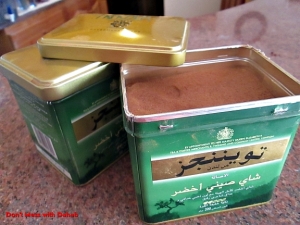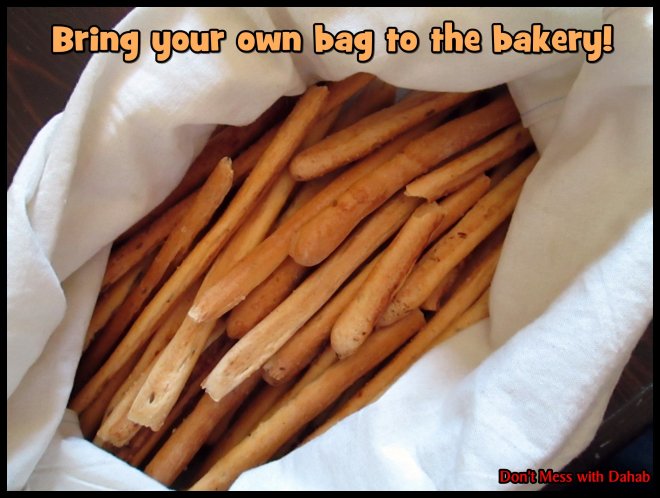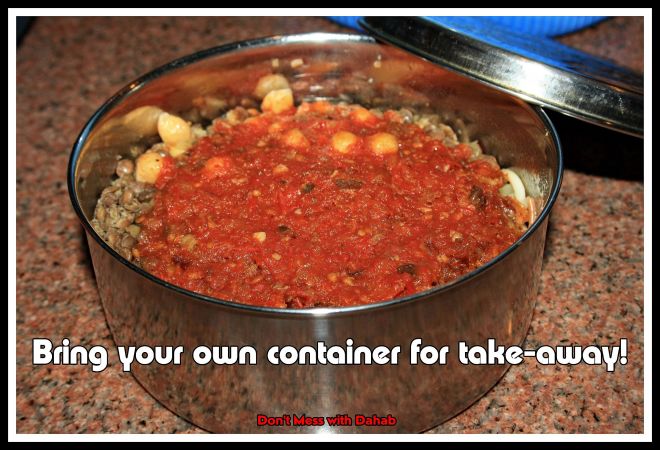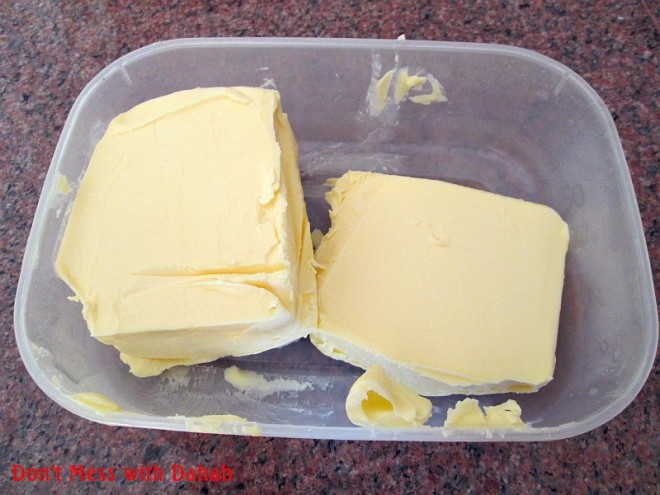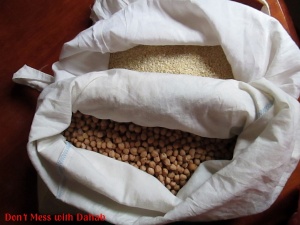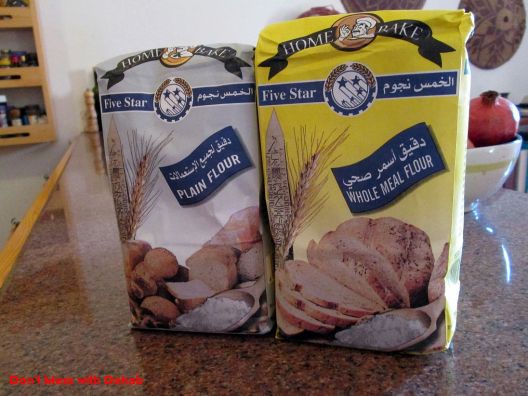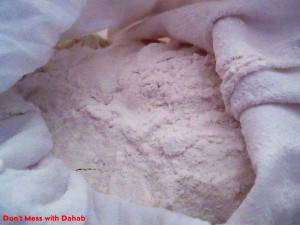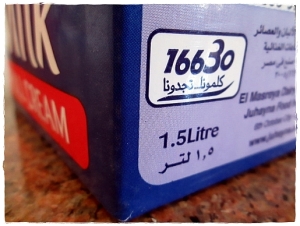In her efforts to help us reduce our plastic footprints, activist and author Beth Terry poses several questions that encourage us to reflect on the plastic trash that we “throw away”. One of those questions is: Which items can you replace with plastic-free or less-plastic alternatives?
One of the items that used to end up in my trash was the plastic bag that breakfast cereal comes packaged in. This was an obvious starting place for me to look for plastic-free alternatives, not just for the sake of the environment but also for the sake of my wallet! My preferred breakfast cereal is granola (similar to muesli) and the tastiest cereals are always the imported – and expensive – brands. Since there were no plastic-free alternatives on the market, it was time to make my own granola. That’s exactly what I’ve been doing for several years now. And as I’ve learned about more plastic-free alternatives as far as the ingredients go, I can now create a completely plastic-free granola!
I can’t share an exact recipe with you, but here is a list of what went into the batch of granola I made today:
Whole meal flour (purchased in a paper sack)
Oatmeal (purchased in a metal tin that can be recycled)
Dried Coconut Flakes (purchased in my own container from the bulk bags)
Walnuts (purchased in my own container from the bulk bags)
Sesame Seeds (purchased in my own container from the bulk bags)
Cinnamon (purchased in my own container from the bulk bags)
Butter (purchased in my own container)
Molasses (comes in a glass jar, can be recycled)
Vanilla Oil (purchased in a small glass bottle from a local spice shop)
Dried Apricots and Raisins (purchased in my own container from the bulk bags)
Basically, I mix all the dry ingredients except for the fruit together in a large bowl. I use about a cup each of the flour, oatmeal, and coconut and about a ½ cup each of the nuts and seeds. I melt the butter and molasses together, add a few drops of vanilla oil, and then pour the melted butter over the dry ingredients and mix together.
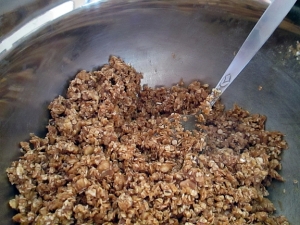
All of the ingredients mixed together.
Next I spread the mixture on a tray and bake until crisp and golden brown. (Today I baked the granola for a bit too long so it’s extra dark and crispy!)
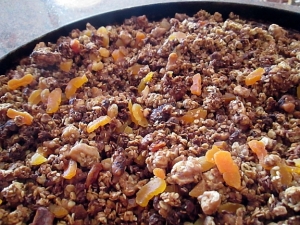
Baked granola on a tray mixed with dried fruit.
Once it’s cooled down, I mix in the dried fruit and then store in containers. Delicious with milk or yogurt for breakfast…or covered with a chocolate sauce for a healthy dessert. 🙂
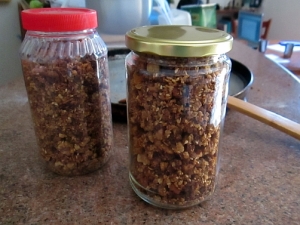
Enough granola for a couple of weeks!
Not only is my granola plastic-free and less expensive, it’s also tastier than any packaged cereal. Win-win-win! (The plastic jar that I’m using here for storage originally contained honey and I am REUSING it. I need more large glass jars!)
If you’re interested in preparing your own granola or breakfast cereals, simply search the Internet for recipes. There are tons of tempting recipes available out there!
Refuse ~ Reduce ~ Reuse ~ Recycle
28.533067
34.441614

